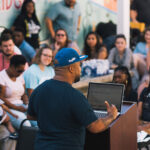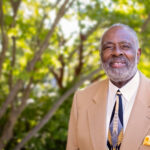When Breonna Taylor was shot by police who burst into her home unannounced in the middle of the night, pastor Deryk Hayes heard the shots.
“I looked out my bedroom window and saw the police lights and sirens,” he said. He’d only been in Louisville a few months, pastoring a largely African American church in a neighborhood where the KKK used to burn crosses in yards. When the first black family bought a house there in the 1950s, it was bombed. Over the years, homeowners moved out and renters moved in. Property values dropped and crime rose.
Hayes loves it there.
“The people in my church want to please God by loving and serving one another,” he said. “They really want to be engaged in discipleship and ministry. It’s a church that wants to be the hand and feet of God.” Even before the protests, church members were working on ways to love their neighbors by feeding the hungry and caring for the elderly.
TGC asked Hayes—and four other African American pastors across the country—how their churches address racial injustice, how they’re responding to the current unrest, and how they’re thinking about the future.
******
Name: Deryk Hayes
Church: St. Paul Baptist Church at Shively Heights
Weekly attendance: 95–105 (primarily African American, with 10–15 white members)
City: Louisville, Kentucky
Eleven years ago, the predominately black St. Paul Missionary Baptist Church was outgrowing its space, while the mostly white Shively Heights Baptist Church was declining in membership. In a celebrated move, the two merged, but time was hard on both the neighborhood and also the church. When Hayes arrived in January, attendance had shrunk. But he doesn’t mind: the church has a beautiful building and a willing heart.
“We have a number of seniors who live in the area who don’t have the energy or finances to get groceries,” Hayes said. “After COVID, we’re going to see if we can feed them one day a week from the church’s two industrial kitchens.”
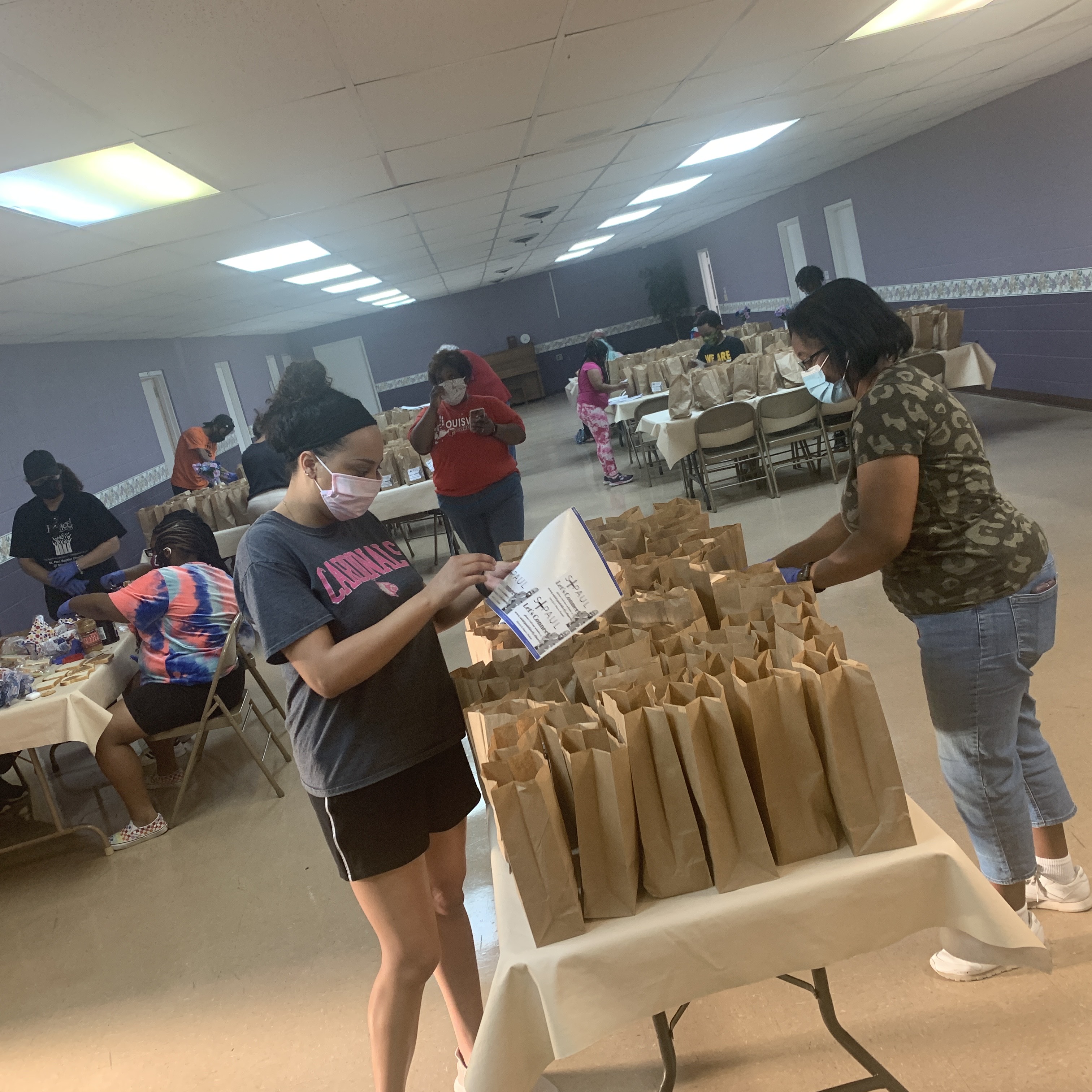
The church also has a gym with a walking track he’s opened up for the community to use. “I told the church in order for us to be good stewards, we have to use all of the tools God has given us,” he said.
That includes the people. He talks to them about their gifts and talents, and ways God might be calling them. They’re listening: this month, members have passed out 500 sack lunches in an under-resourced neighborhood about 10 minutes from the church, provided dozens of lunches for school kids on summer break, and given away 200 pizzas in the church parking lot. Hayes rarely meets an idea he doesn’t like (“Hey, let’s give it a try, because all we can do is fail.”), including soliciting some from the city council (“I just asked, ‘How can we help?’”)
Hayes has also been on the streets, walking with protesters. He was able to pray with police and also with the family of David McAtee, a black restaurant owner killed by the National Guard during the protests. “God has given us some opportunities to minister in what I believe are effective ways over the last few weeks to those who are hurting the most,” he said.
“It’s a matter of getting to know your community as best you can,” he said. “Be a missionary to your community. Learn what brings them joy and what brings them pain. Rejoice and weep with them. And then engage with people with love and kindness. Try stuff. Be willing to fail. We have to be willing to be embarrassed for the sake of the gospel.”
******
Name: Rufus Smith
Church: Hope Church
Weekly attendance: 6,500–6,800 (primarily white, 20 percent African American)
City: Memphis, Tennessee
When Rufus Smith came to the country’s largest Presbyterian congregation in 2010, it was less than 1 percent African American. Slowly, he and other lead pastors talked to members, taught classes, and included more African Americans on stage and for nomination to elected offices. Today, it’s more than 30 percent African American.
“Part of becoming a multigenerational, multiethnic congregation is that many of the discussions [around race] are happening so often that when a spark plug like this happens, we can seize the opportunity,” Smith said. He’s shifted the weekly Bible studies he’d been sending out during the coronavirus lockdown to focus on race. He’s answered questions from other faith leaders, business leaders, and political leaders. He’s met with activists.
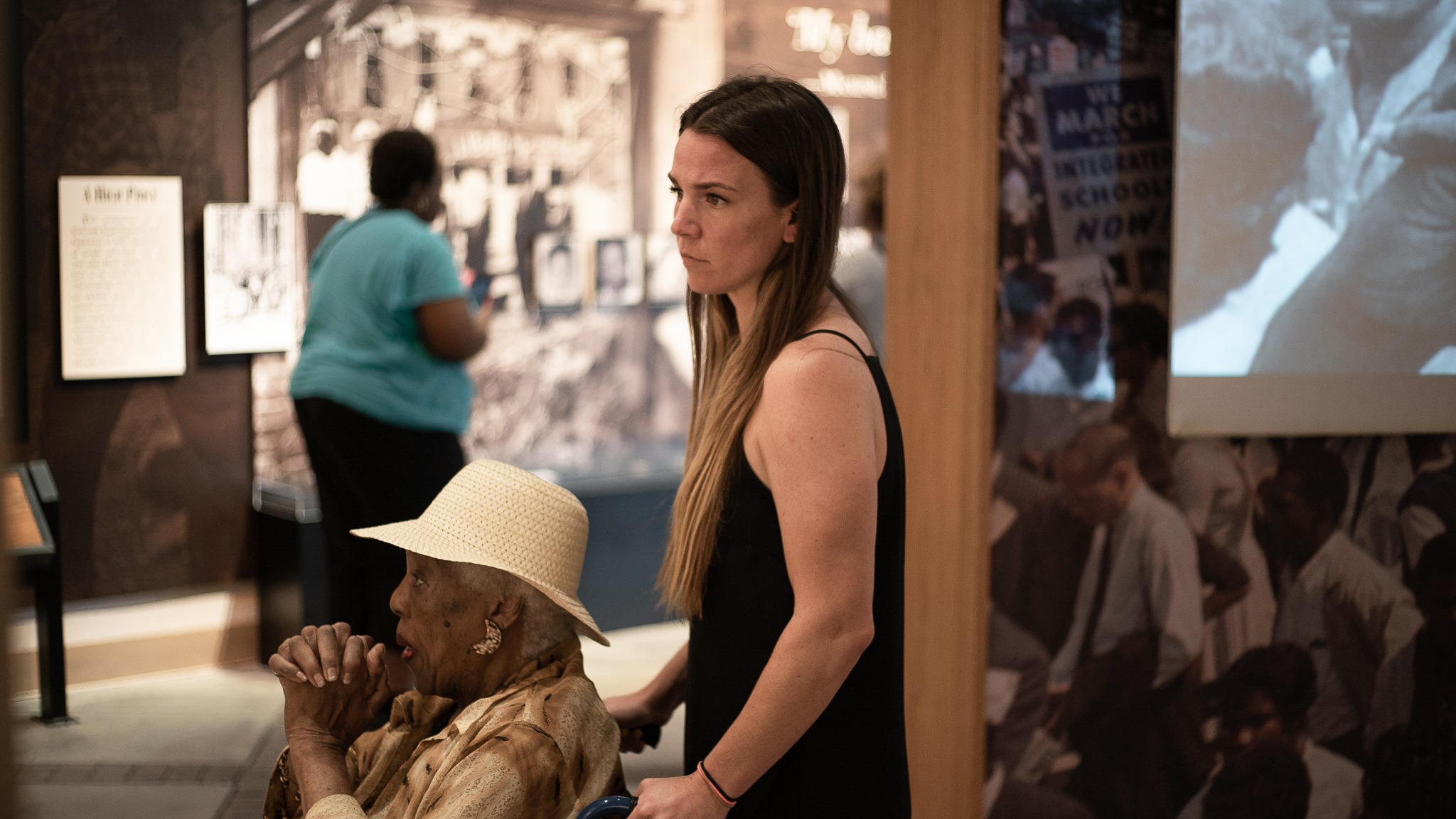
“How can you begin to help others who are now interested—at least for the time being—on this subject matter?” he said. “How can you help them see it through a biblical lens?”
He advises pastors to help their congregations by preaching the gospel without glossing over examples of racial inequality that arise in various biblical texts. You can find them in places like the parable of the Good Samaritan (Luke 10:25–37), in Peter’s telling Cornelius’s household that it’s unlawful for him to be there (Acts 10), and in how James describes the discrimination of the day (James 2:1–13).
“Your goal ought to be to preach the Word of God in its context,” he said. “Then you can begin to create conversation spaces for those who want to discuss it.” Don’t delegate those interactions to staff, but do them yourself, he said. He’s doing a Zoom Q&A for Hope members who are worried his outspokenness on race may mean a slide into partisan politics.
“First I’m going to give them space to talk,” he said. “Then I’ll say, ‘Let’s concede that both sides are politicizing the matter, and that we should never let that drive us as Christians. My question is: What are the seeds that bred the protest? Now how does the gospel speak to that? Let’s just talk about that.’”
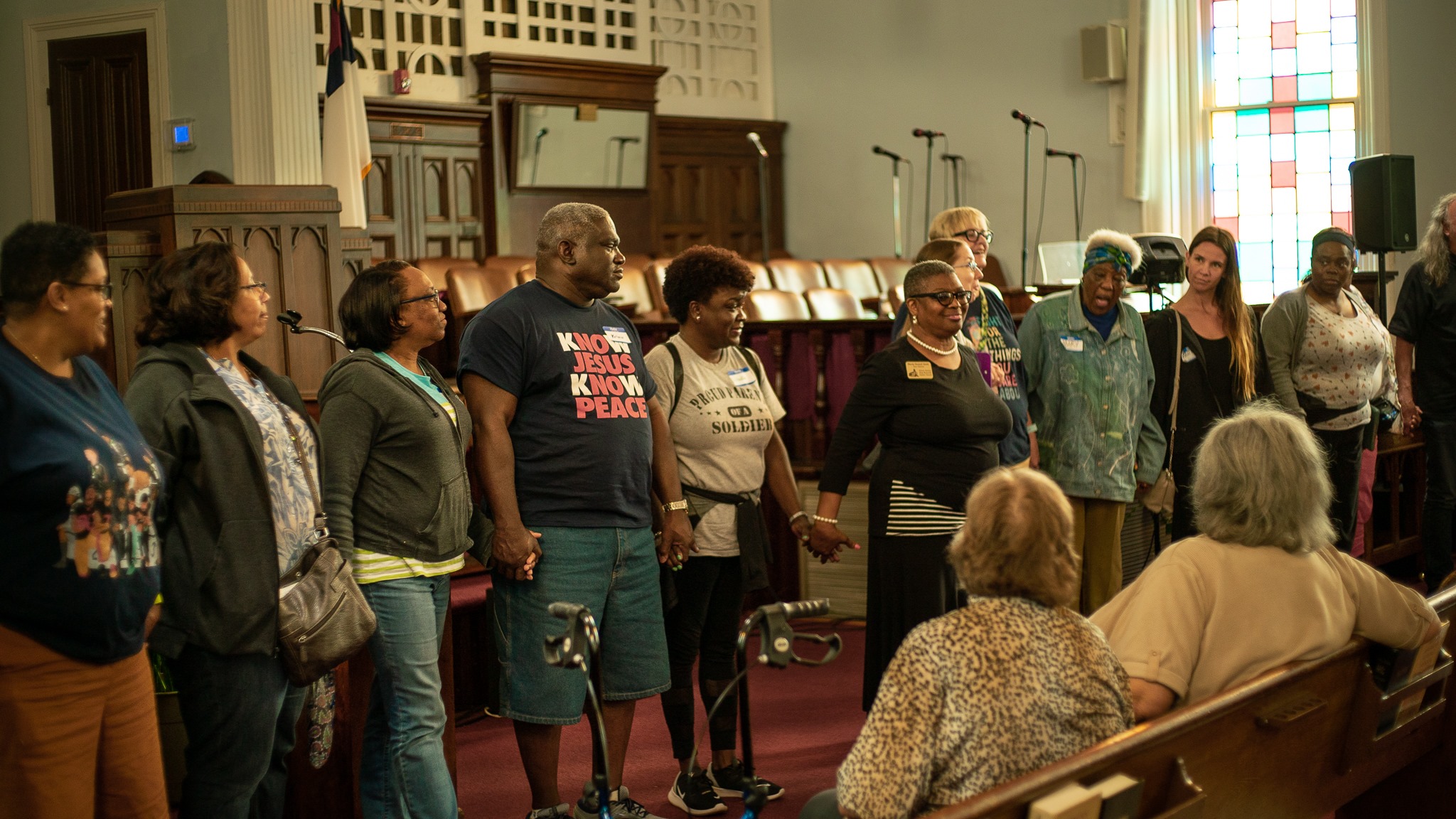
He’s patient with them. “I’ve got to give room for God the Holy Spirit to change people’s hearts.”
But Smith is also hearing from those who think he’s moving too slowly and gently. For those anxious to move on racial issues, he gives the green light. “Scale up what are called mercy ministries,” he said. “If you’ve already been involved in affordable housing or workforce development, now you have more of an audience, so take advantage of that.”
It may also be a time to add or reevaluate partnerships with outreach and ministry organizations. “Now you may have more of an eye for how people in the church—who may not have been interested before—can help,” he said. After George Floyd’s death, one church upped its gift to an inner-city pastor from $5,000 to $25,000 because they were impressed with his work.
Churches should be writing statements on racial injustice, but if it isn’t attached to concrete actions, it shouldn’t be made public, he said. Instead, those statements should sit with the staff until they’ve decided on something—even baby steps—that they think the church could and should do.
“Sometimes people—and I’m guilty of this myself—don’t hear God until there is a crisis,” Smith said. “God, who is omniscient and omnipotent and can stop anything, did not stop either COVID-19 or George Floyd’s murder. I think crisis is his way of forcing us to pay attention in ways we didn’t before.”
******
Name: Jay Harris
Church: The Ville Church
Weekly attendance: 75 (about 55 percent white, 45 percent African American)
City: Jacksonville, Florida
“Jacksonville has a deep racial history and divide,” Harris said. “You can feel it here.” He’s had out-of-town people ask him about the blatant racism they see, which scares him a little, because it means he’s gotten used to it.
The Ville is in a rough part of town, in a neighborhood that leads the city in poverty and homicide. The buildings are so dilapidated it’s nearly impossible to find a place for church that will pass the fire code. Several members of The Ville have moved into the area, and Harris’s house is on the market so he can, too.
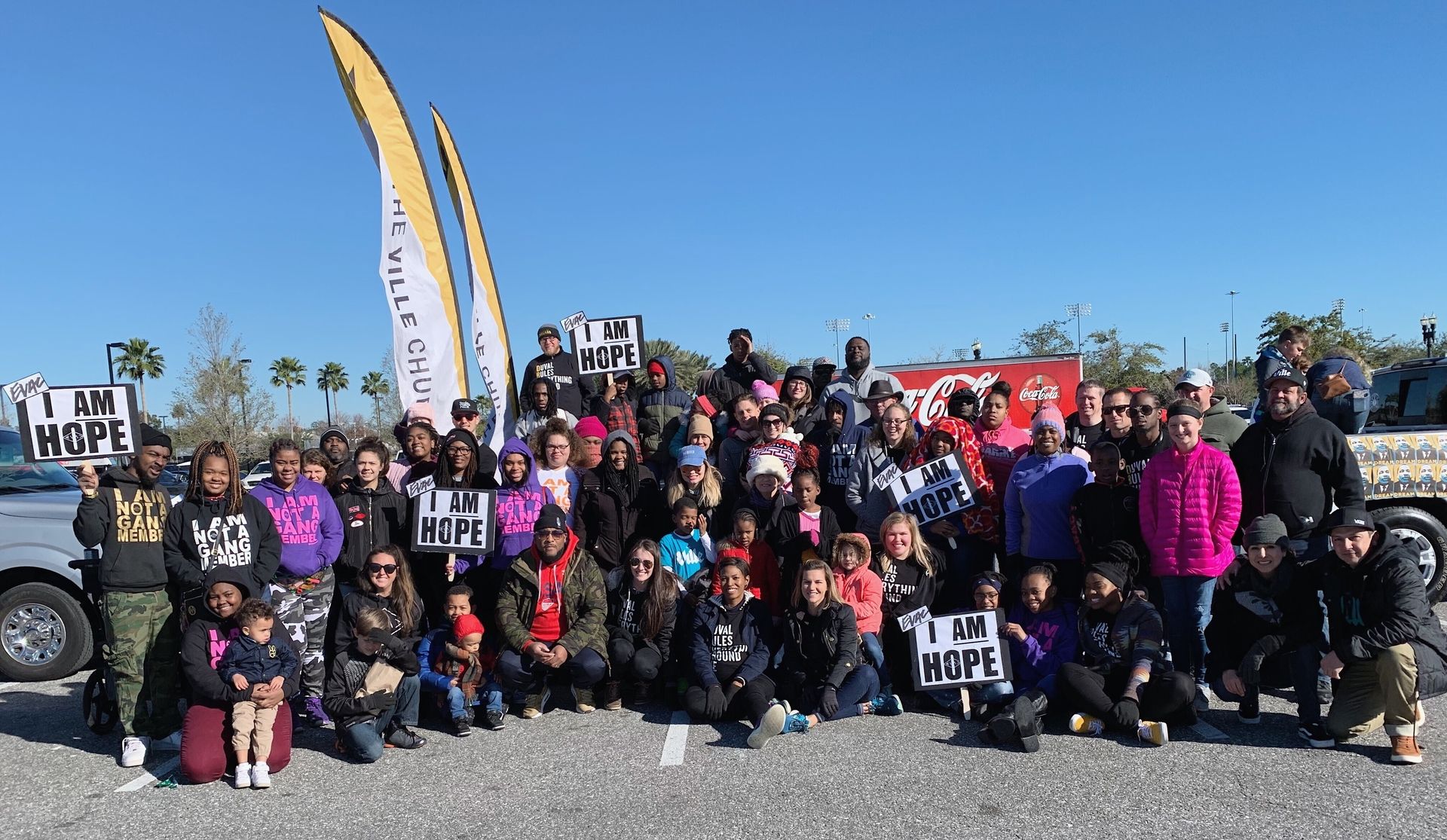
Harris grew up rough himself—he was saved after stepping into a church so he could get some peace and quiet to contemplate the best way to a kill an enemy—and he spends so much time on the streets that people who have never been to church consider him their pastor.
“We have to get close,” said Harris, who regularly hangs out with young men who deal drugs, who have been shot, who have shot someone else. He knows a young woman raising four kids on her own after her boyfriend was shot by police under suspicious circumstances. (Law enforcement have refused to release the body-cam footage.) He knows a boy who has a bullet lodged in his hip, but no health insurance to do anything about it. And he knows a young man who won’t get a job, because sitting at the bus stop makes him a target for gangs who don’t care if they’re shooting the right person or not.
“Our IQ goes up from hearing each other,” he said.
The path to righting racial injustice is a messy one, and The Ville sees a lot of conflict. Harris isn’t shy about confronting sin. But “if you don’t have the conversation, you’re settling for a betrayal of that family Christ calls us to,” he said. “People aren’t going to know each other well. I have fallen out with people only to fall in with them deeper than ever.”
The gospel is my hope for the world. . . . The most grievous thing is that people could gain the world and lose their souls.
He doesn’t think everyone needs to move to the ‘hood, and he’s not angry that Christians have different perspectives on politics and the police. But “it feels dehumanizing to me if they won’t listen and learn,” he said of white pastors. “If you don’t weep when I weep, it betrays our relationship because your complacency gives credibility to sin or sinful systems that cause me and other people of color to suffer.”
He finds hope in the story of Zacchaeus, who made restitution only after his heart change.
“The gospel is my hope for the world,” he said. When he’s walking with protesters, he’s grieving systems that are wrong, advocating for his and his family’s rights, and building relationships. That give him the chance to ask those around him what they believe.
“I’m all about justice, too,” he tells them. “But the most grievous thing is that people could gain the world and lose their souls.”
“I’m standing in front of a community that needs the gospel,” Harris said. “This is a time when you can build a lot of relational capital by being present, and that will lead to a lot of opportunities for the gospel to be presented.”
******
Name: John Onwuchekwa
Church: Cornerstone Church
Weekly attendance: 350–400 (about 70 percent African American, about 30 percent other races)
City: Atlanta, Georgia
“When things like this take place, we see how polarizing it is—not just for our world, but for our church,” Onwuchekwa said. “We used to feel like we had to bring everybody in at one time, but we’re starting to learn that we basically have to segment our church into groups. And those different groups need different things.”
Some are waking up to racial injustice for the first time, and right away they want to help, he said. “But we feel like the willingness to help without the wisdom to know what’s wrong is a dangerous thing.” It’s like a couple who goes to counseling but can’t agree on the root problem in their marriage, he said.
The willingness to help without the wisdom to know what’s wrong is a dangerous thing.
Sometimes this means having a deep conversation to explain things, Onwuchekwa said. But while that leaves the learner exhilarated and enlightened, it often exhausts the teacher. Historical injustice—from banks that took black money only to lose it through corruption, to the Federal Housing Association’s refusal to back mortgages in black neighborhoods tanking property values there, to the biases in the criminal justice system—can be learned from the internet or from books. For most people, that’s the place to start, he said.
Other church members are eager for progress; they want to do something. About nine years ago, Cornerstone pastor Richard Mullen organized a move to the west end of the city, a primarily African American area hit hard by the 2008 economic recession. Today, about half the members live within two square miles of the church building, where the median household income is a little more than $30,000.
“Out of that move, our church got started,” Onwuchekwa said. “It was a byproduct of three families that moved into a community and started to live and serve and be about the work in a very grassroots way. Out of that launched a church. We got a slew of successful minority entrepreneurs in the community that all started based out of the connections in the church.
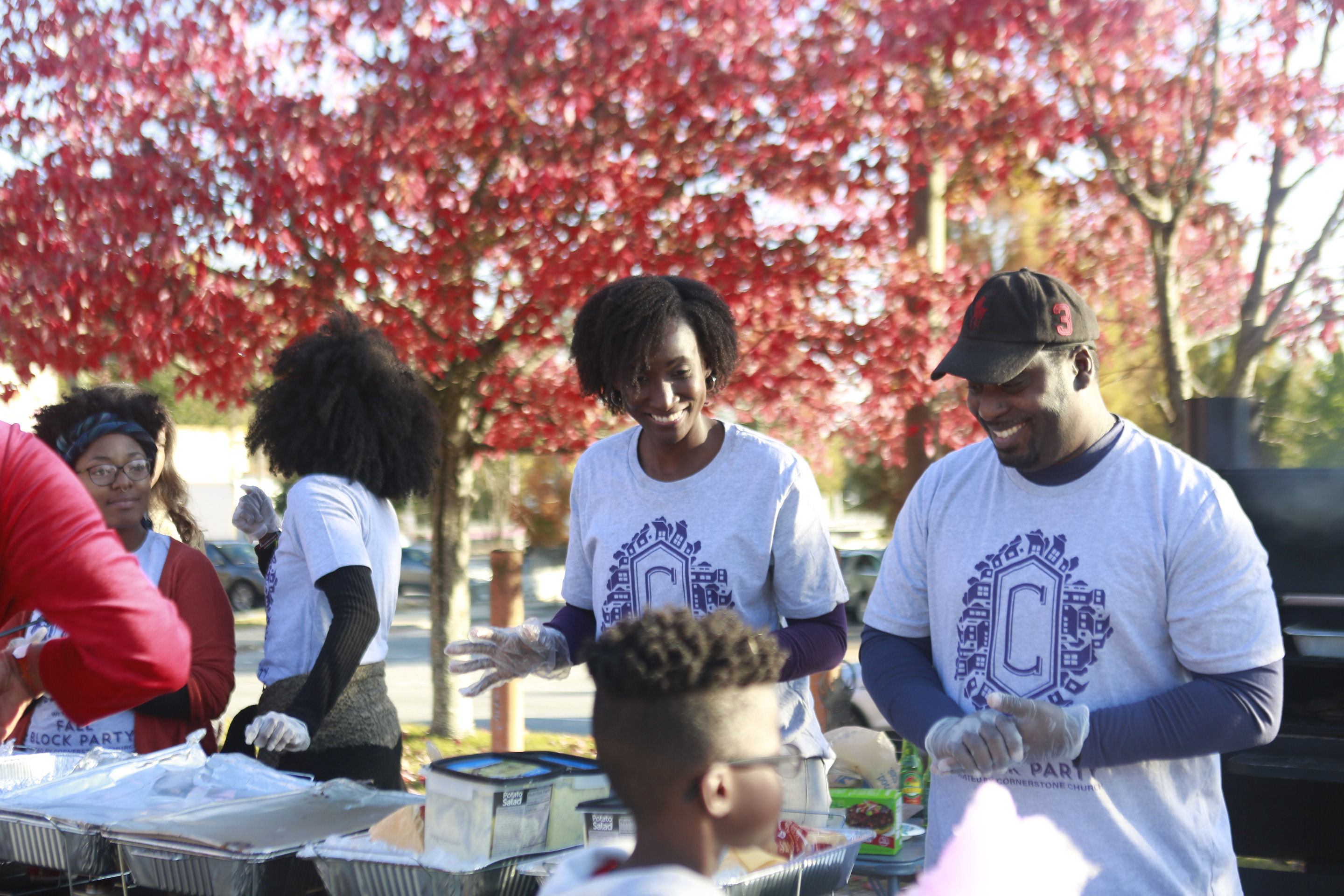
“We’re trying to help folks that want progress to see it’s like planting a tree—slow and ordinary,” he said. A drop-in program might help a little, but change comes “when people incarnate their lives.”
He’s also reevaluating partnerships, and thinking about the best ways to use his time and energy. “I’ve narrowed and set my scope on this issue of racial inequality and injustice,” he said. “It really needs to be attacked and addressed with the full weight of the gospel. I don’t think that’s outside the realm of what Christians have done in the past.”
For instance, every time John Calvin “comes up against an abuse of authority or evil systems—in his case, abuses of the papacy—he always has his sights on tearing down that structure.”
******
Name: Irwyn Ince
Organization: Grace DC Network’s Institute for Cross Cultural Mission
City: Washington, D.C.
For the past two and a half years, Irwyn Ince has been working with churches—primarily white or multiethnic—that are trying to address racial injustice.
“What does not work is ignoring it,” said Ince, who served as the first black moderator of the Presbyterian Church in America. It doesn’t work to separate the preaching of the gospel from living out the implications of the gospel by seeking justice.
“You cannot divide them and be faithful to following the Lord, in my opinion,” he said. “Also, that is the most effective way to distance yourself from the very real concerns of fellow image-bearers who have experienced historically the realities of injustice.”
This battle is—as all are—ultimately spiritual. ‘The resistance isn’t necessarily discouraging—it’s expected,’ Ince said. ‘The enemy wants above all to keep the Lord’s church divided as best he can to destroy our witness to the world.’
In 2016, he studied a handful of churches that began digging in on racial injustice—hosting book discussions, bringing in speakers, or facilitating small-group conversations.
“We have to be willing to talk truthfully about history and the way it informs the present, and we have to create spaces that enable vulnerability and safety, and we have to work against a spirit of defensiveness,” Ince said.
The thing is, “there’s no way to do it perfectly,” he said. People will get hurt. They’ll get mad. Some will leave your church. “You’ll mess up. You don’t want to, but you can’t avoid it, because you’re not perfect.”
The key is to make sure it’s the gospel, not you, doing the offending, he said. “If I find out I have offended, the gospel calls me to confession and repentance and forgiveness. That has to be an integral part of this. That’s what works.”
The churches that began this conversation four years ago are “probably the most well-equipped to deal with the current crisis,” he said. Not because they have everything figured out, but because they know what to do, how to move forward. They aren’t paralyzed by the fear of failure or offending.
The churches that began this conversation four years ago are ‘probably the most well-equipped to deal with the current crisis,’ he said. Not because they have everything figured out, but because they know what to do, how to move forward. They aren’t paralyzed by the fear of failure or offending.
In fact, he doesn’t recommend a church do anything else—start a food pantry, begin a mentorship program, open a pregnancy center in the inner city—until they have slowed down to pray, lament, and listen. Because this type of work takes “the long view,” he said. “This is not just about the moment, but about what the trajectory of the church is going to be.”
It’s slow going, and it can wear you out, he said. “It is tiring and wearying work. Pastors need healthy rhythms of rest, recovery, and accountability. And their identity needs to be based in being adopted by God through faith in Jesus Christ, not on how well they execute their pastoral mission or deal with issues of racism or injustice.” Most of all, he said, they need to remember that the work is impossible apart from the Spirit of God.
That’s because this battle is—as all are—ultimately spiritual. “The resistance isn’t necessarily discouraging—it’s expected,” Ince said. “The enemy wants above all to keep the Lord’s church divided as best he can to destroy our witness to the world. We don’t wrestle against flesh and blood.”
So even amid the violence and protests and emotions, he’s encouraged. At the Institute for Cross Cultural Mission, the phone has been ringing off the hook with churches who want to address racial injustice.
“I’m seeing a much broader willingness within the evangelical church to deal with this forthrightly,” he said. “They may not all agree on everything, but they see systemic issues of injustice and want to discern a way forward, to declare what is not right in the eyes of the Lord.”
Is there enough evidence for us to believe the Gospels?
 In an age of faith deconstruction and skepticism about the Bible’s authority, it’s common to hear claims that the Gospels are unreliable propaganda. And if the Gospels are shown to be historically unreliable, the whole foundation of Christianity begins to crumble.
In an age of faith deconstruction and skepticism about the Bible’s authority, it’s common to hear claims that the Gospels are unreliable propaganda. And if the Gospels are shown to be historically unreliable, the whole foundation of Christianity begins to crumble.














